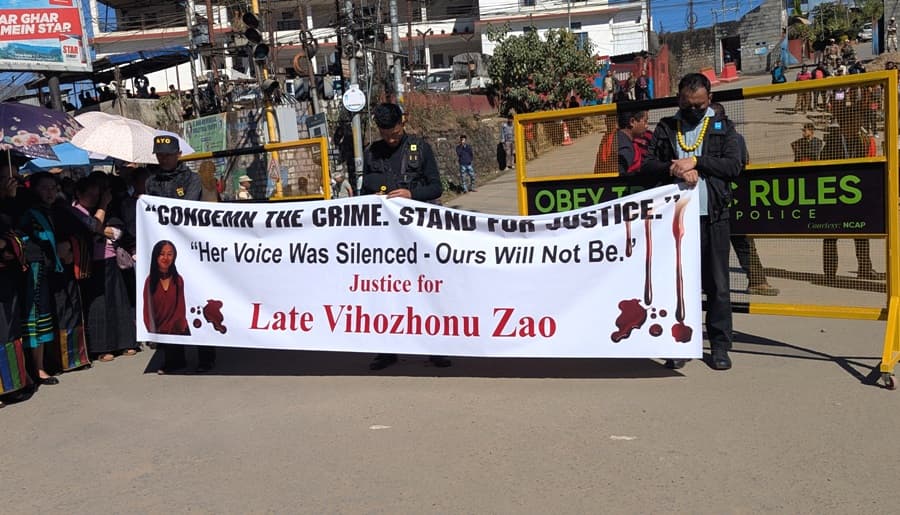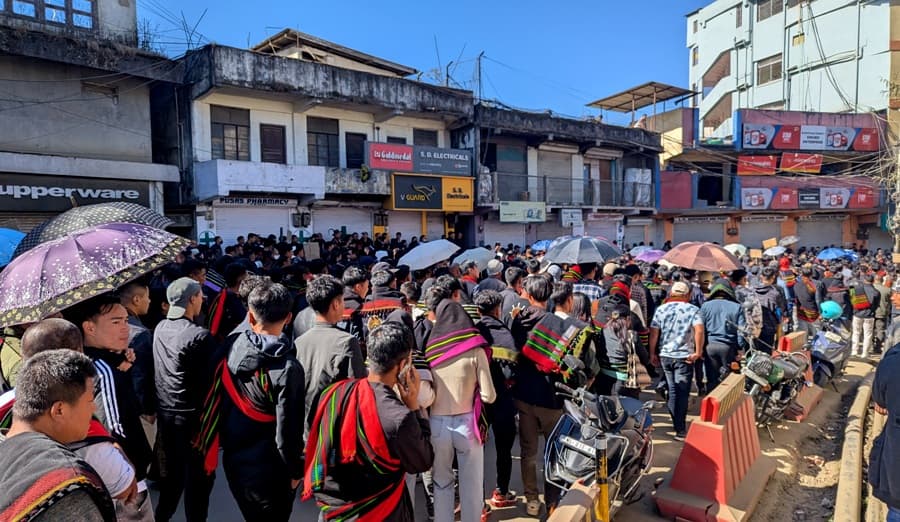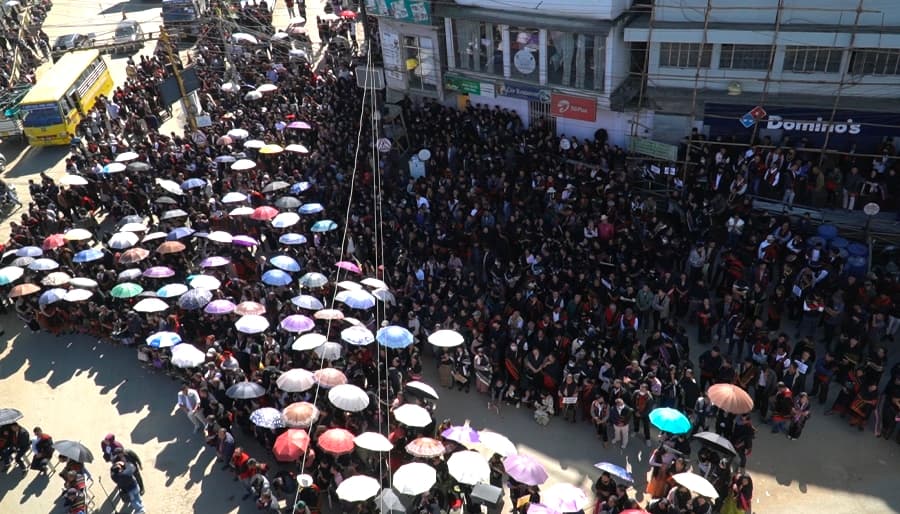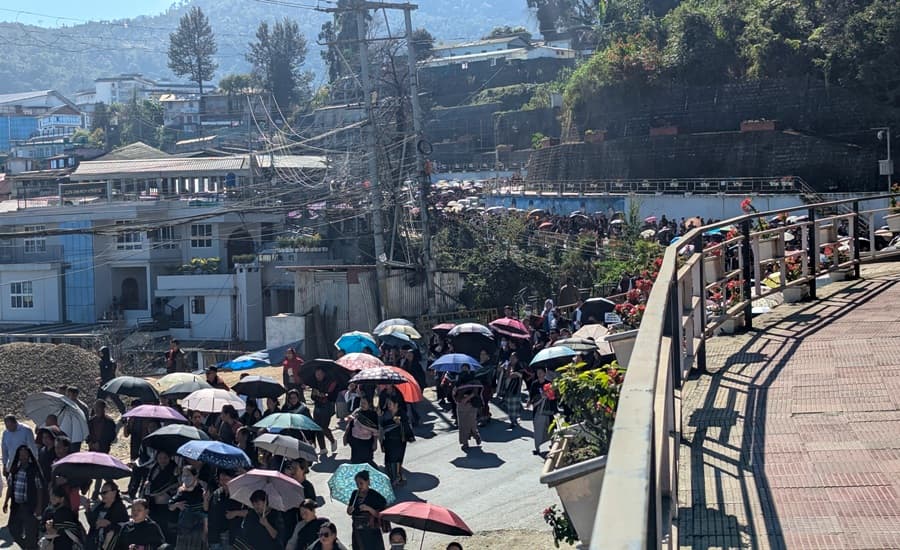Thousands marched in Kohima demanding justice for Vihozhonu Zao, urging capital punishment for the accused and stronger measures to ensure women’s safety in Nagaland.
Share

KOHIMA — Thousands marched from PHQ Junction to the Deputy Commissioner office in Kohima on Tuesday demanding swift action and capital punishment for the accused in the murder of Vihozhonu Zao, who was killed on October 24.
A memorandum seeking justice and stronger measures for women’s safety in Nagaland was submitted to the chief minister through the district deputy commissioner. The rally, organised by the Southern Angami Youth Organisation (SAYO), saw participants dressed in traditional attire walking in silence before dispersing after the submission of the memorandum.
Addressing the gathering at PHQ Junction, speakers called for capital punishment for the arrested accused and urged the authorities to ensure a transparent investigation.

Zao, a 22-year-old basketball player and recent graduate, was found dead near her residence at Old Ministers’ Hill on October 25. Kohima Police arrested one accused, Samuel, the victim’s uncle, on November 4 after he allegedly confessed to the crime. He has been charged under Section 101/103 (1) of the Bharatiya Nyaya Sanhita, 2023.
In the memorandum, SAYO urged the state government to reaffirm its commitment to zero tolerance for crimes against women. It stated that the organisation would continue to press for justice until concrete steps are taken to ensure safety and accountability.
Related:
The memorandum demanded immediate arrest of all persons involved, including any accomplices, and said no individual connected to the case should remain at large. It asked the authorities to ensure stringent punishment under the Bharatiya Nagarik Suraksha Sanhita, 2023, and to conduct prosecution without compromise.

SAYO also called for the accused to be denied bail, citing concerns about the seriousness of the offence and possible intimidation of witnesses. It urged the government to instruct investigating and prosecuting agencies to oppose bail at all stages.
The memorandum requested the Special Investigation Team (SIT) to conduct a thorough inquiry and ensure regular monitoring by senior police officials. It also listed investigative tools such as CCTV analysis, mobile and CDR examination, DNA profiling, fingerprint identification, digital forensics and GPS tracking.

It further appealed for preventive steps to enhance women’s safety, including stricter enforcement of laws and installation of CCTV cameras in public spaces and transport hubs.
A representative of Porütso Khel, Jakhama village, reiterated the demand for capital punishment and called for full disclosure of facts, stating that any attempt to delay or conceal information would not be accepted.
WATCH MORE:
Earlier on November 8, members of the khel vandalised the property of the accused and ostracised the grandmother and two aunts of the victim.
The representative said the killing had caused deep anguish within the community and urged investigators to maintain transparency and avoid any form of interference.
A representative of the Jakhama Youth Organisation also called for a swift investigation without delays.
The Southern Angami Women Organisation demanded capital punishment and opposed bail for the accused, while the Angami Women Organisation referred to relevant provisions of the BNS Act to support its demand for strict punishment for both the accused and any abettors.
The Angami Youth Organisation said all individuals connected to the victim, including family members, should be examined and called for expediting the investigation. The Western Angami Youth Organisation stated that attempts to seek bail must be resisted. The Chakhroma Youth Organisation and Northern Angami Youth Organisation also condemned the killing and sought timely justice.